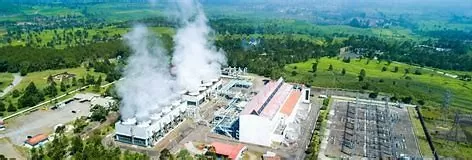Britain's Labour Party will face crucial policy choices when recommendations for the UK's seventh carbon budget are published.
Viewing environmental protection as antithetical to growth can alienate the business community.
Next week, Labour will face key policy choices that could expose the contradictions between the Treasury and the government's green ambitions, when recommendations for the UK's seventh carbon budget are published.
Plans covering energy, housing, transport, industry and agriculture will be scrutinised to help the UK meet its legal target of net zero greenhouse gas emissions by 2050.
Ministers will receive hundreds of pages of recommendations on what steps to take to reduce emissions to around a quarter of current levels by 2040. The seventh carbon budget, due to be published on 26 February, is the latest update in a series of budgets released since 2008.
 |
| Plans covering energy, housing, transport, industry and agriculture will be scrutinised to help the UK meet its legal target of net zero greenhouse gas emissions by 2050. Illustration photo |
The timescale for these recommendations is far beyond the usual political horizon: the budget will set carbon levels between 2038 and 2042. But the Climate Change Committee (CCC), the official advisory body under the Climate Change Act, predicts that the UK is falling too far behind.
While the Committee on Climate Change (CCC) has no power to direct specific policy, it can make recommendations and set limits on the extent to which governments can act. For example, if airports expand and demand for flights increases, governments will have to implement deeper carbon cuts in other areas of the economy.
For that reason, the recommendations may make senior ministers uncomfortable. Environmental groups and businesses are increasingly concerned about statements from some cabinet members that sometimes appear to pit economic growth against environmental goals.
Doug Parr, chief scientist at the international NGO Greenpeace UK, has warned of a “growth at all costs mindset”, in which growth is seen as the top priority, while climate issues and nature protection are seen as obstacles.
Finance Minister Rachel Reeves raised concerns among many when she said planning reform would allow developers to focus on building and stop worrying about bats and salamanders.
“ The cost to the global economy of unchecked warming could be as high as $38 trillion a year, according to research published in 2024,” said Mike Childs, head of science, policy and research at international environmental non-profit Friends of the Earth. “In the UK, around 6.3 million households are currently at risk of flooding, a figure that could rise to around 8 million by 2050, according to the Environment Agency. Investing in carbon reduction is not only a sensible economic decision, but failing to do so would be a serious economic mistake .”
A number of other major decisions are still being considered, including rules for builders to ensure new homes meet low-carbon standards, and a review of the nature and farming regulations. But the most controversial decision is likely to be the licensing of new North Sea oil and gas fields. Many, including Rosebank, one of the largest, have already been brought into the licensing system. Given Labor’s programme commitment not to grant new licenses unless it revokes existing ones, some in the government are arguing that Rosebank should be allowed to go ahead.
Viewing environmental protection as antithetical to growth could alienate the business community, according to Rachel Solomon Williams, chief executive of the Aldersgate Group, an organisation of companies promoting a green economy. “ To create a strong and sustainable economy, we need to lead in low-carbon sectors that will drive sustainable growth in the future. Businesses across the country want to see a regulatory and policy framework that encourages ambition and innovation in the private sector, rather than a race to the bottom ,” added Rachel Solomon Williams.
With the UK on track to meet its current carbon budgets, further action will be needed in both the short and long term, across all sectors of the economy, including changes to almost every aspect of our lives, from how we live at home, to how we travel, the jobs we do and what we eat.
Ministers must set out their seventh carbon budget by the end of June 2026. They are likely to accept the recommended overall carbon target, but detailed policy recommendations are still up for debate. A spokesperson for the Department for Energy Security and Net Zero said: “ We are committed to achieving our ambitious targets. The UK has returned to climate leadership, because the only way to protect current and future generations is to become a clean energy superpower and lead global climate action .”
Energy
If the government achieves its target of almost complete de-emissions in the electricity system by 2030, which is still a big “if”, it is not the end of the story. Electricity supply will have to double to meet future demand. “ The electricity system is critical because heating, transport and around two-thirds of industry will need to be electrified,” said Ed Matthew, programme director at consultancy E3G. “The 2030 target is really just the start of the electrification journey.”
Grid improvements will be needed, along with greater attention to demand management and energy storage, as these will be key to ensuring a stable supply of electricity. E3G calls for increased investment in hydrogen, as it can be stored in solid or liquid form, producing energy when needed.
Housing
Home heating accounts for around 18% of the UK’s greenhouse gas emissions, mainly due to gas. By the 2040s, most homes will need to use heat pumps, but uptake of the technology has been slow so far. Last summer, only around 250,000 homes had heat pumps.
Heat pumps are more expensive to install than gas heating systems and are not yet as cheap to run as they could be. This is largely due to the way the UK electricity market works, which makes electricity much more expensive than gas.
Ed Miliband, the Energy and Net Zero Secretary, has expressed concerns about the technology, telling a select committee: “ I would be very reluctant to say that we are going to ban people from using gas heating at a time when we cannot yet guarantee that heat pumps will be cheaper for people .”
However, there is no real alternative to mass heat pump installations if the UK wants to move away from gas, a point the Committee on Climate Change (CCC) is expected to make strongly.
Industry
Moving away from fossil fuels in industry will require a shift to greater electrification and investment in new technologies. For some industries, the only solution will be carbon capture and storage, and the UK government plans to invest more than £20 billion in this over the next two decades.
All of this requires significant investment, but at present few private sector companies are taking the necessary steps. Some may be waiting to see how the government will support them, while others may be playing a “chicken game”, trying to pressure ministers into softening their commitment to the UK’s “net zero” target.
“ By making clear its strong commitment to rapid emissions reductions, the government will create economic certainty, which will ultimately drive investment and create prosperity, ” said Williams, of Aldersgate Group.
Traffic
From 2035, it will be impossible to buy a new petrol or diesel car in the UK. However, most of the UK’s 30 million cars are likely to still be reliant on fossil fuels for several years after that. Electric cars are also not a perfect solution, as they still produce significant and increasingly worse air pollution, just like conventional cars.
To meet emissions targets, people will need to use public transport more in the future. This will also stimulate economic growth. According to the National Infrastructure Commission, the UK is seriously lagging behind other European countries in the availability of public transport in many major regional cities, and this is a drag on productivity.
While the government has begun to take the rail sector back into public ownership, put bus services under executive control and backed the Oxford-Cambridge corridor, there is still no sign of a national public transport strategy that connects and invests in local networks such as trams – something experts say is needed.
Agriculture
Noisy tractors blocking streets in Whitehall in protest at cuts to inheritance tax benefits have highlighted the strained relationship between the government and farmers.
But farmers play a key role in any greenhouse gas reduction strategy, helping to plant more trees, protect and restore peatlands, and mitigate the growing emissions from agriculture. The agricultural sector has now overtaken the electricity sector and is expected to become the largest source of greenhouse gas emissions in less than a decade, according to analysis from the Energy Climate Intelligence Unit.
Methane, a potent greenhouse gas whose main source is animal manure, needs to be controlled immediately if the world is to avoid the most serious damage from climate change.
| Plans covering energy, housing, transport, industry and agriculture will be scrutinised to help the UK meet its legal target of net zero greenhouse gas emissions by 2050. |
Source: https://congthuong.vn/khuyen-nghi-ngan-sach-cacbon-thu-7-cua-anh-co-gi-dac-biet-375184.html




![[Photo] Ha Giang: Many key projects under construction during the holiday season](https://vphoto.vietnam.vn/thumb/1200x675/vietnam/resource/IMAGE/2025/5/1/8b8d87a9bd9b4d279bf5c1f71c030dec)
![[Photo] Binh Thuan organizes many special festivals on the occasion of April 30 and May 1](https://vphoto.vietnam.vn/thumb/1200x675/vietnam/resource/IMAGE/2025/5/1/5180af1d979642468ef6a3a9755d8d51)
























![[Photo] Feast your eyes on images of parades and marching groups seen from above](https://vphoto.vietnam.vn/thumb/1200x675/vietnam/resource/IMAGE/2025/4/30/3525302266124e69819126aa93c41092)







































































Comment (0)